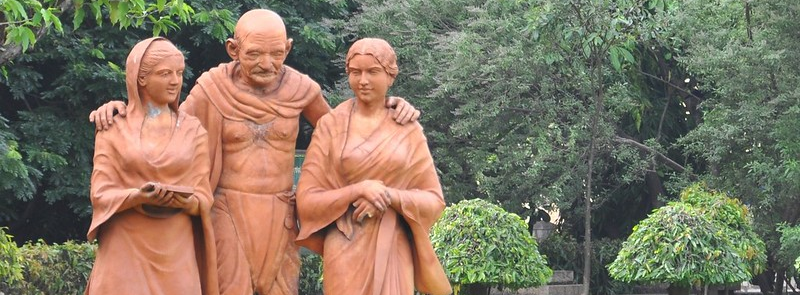
When It Occurs
Every October 2nd to 8th
Timeline
Days Passed (874)
# Hashtags
#AntiUntouchabilityWeek #SocialJustice
Anti-Untouchability Week is observed in India to promote awareness about the historical and ongoing issues of untouchability and caste-based discrimination. The week-long observance seeks to educate people, encourage social reforms, and eradicate the practice of untouchability, which has marginalized many communities, especially those belonging to the Scheduled Castes (SC) or Dalits. The observance is in line with India's commitment to achieving social justice and equality for all.
Background of Untouchability in India
- Untouchability is a form of social discrimination rooted in the caste system, particularly targeting Dalits or those considered "lower castes" in the traditional Hindu hierarchy.
- This practice denies equal rights to certain groups, subjecting them to exploitation, exclusion, and mistreatment. In many cases, Dalits were segregated from public spaces, denied access to education, healthcare, water sources, and forced into menial jobs.
Legal Provisions Against Untouchability
Untouchability was officially abolished by the Indian Constitution in 1950, but the practice persisted in many areas.
-
Article 17 of the Indian Constitution: Explicitly abolishes untouchability, making its practice in any form illegal. It states that "Untouchability is abolished and its practice in any form is forbidden."
-
Protection of Civil Rights Act, 1955: This act was enacted to reinforce the constitutional provisions and provide penalties for those practicing or promoting untouchability.
-
Scheduled Castes and Scheduled Tribes (Prevention of Atrocities) Act, 1989: This law provides further safeguards against caste-based violence and discrimination, with severe penalties for offenders.
Despite legal prohibitions, untouchability and caste-based discrimination still persist in many rural and urban parts of India, necessitating continued awareness and action.
Purpose of Anti-Untouchability Week
-
Raise Awareness: The week aims to increase public awareness about the social, legal, and ethical wrongs of untouchability, helping communities recognize and reject caste-based discrimination.
-
Promote Social Inclusion: It promotes equality and social inclusion, encouraging people from all castes and communities to stand together against discrimination.
-
Education and Reform: Anti-Untouchability Week includes programs that educate people about the history of untouchability, the struggles of Dalits, and the importance of caste reform in India.
-
Government and NGO Efforts: Government agencies, NGOs, and civil society groups organize various activities to highlight efforts to combat untouchability and to promote justice and equality for marginalized communities.
Key Activities During the Week
-
Campaigns and Rallies: Organizations arrange rallies and campaigns in various regions to raise awareness about the lingering effects of untouchability and how it affects people's lives.
-
Workshops and Seminars: Experts, social activists, and legal professionals conduct workshops to discuss the legal rights of Dalits and marginalized communities and the means to eradicate caste-based discrimination.
-
Educational Programs: Schools and universities conduct lectures, discussions, and debates on the issue of untouchability, its historical context, and the road toward social equality.
-
Community Engagement: Anti-Untouchability Week encourages dialogues between different caste groups to promote understanding, reduce social barriers, and eliminate discriminatory practices.
-
Media Campaigns: Social media, print, and television campaigns highlight untouchability's impact on society, often sharing real-life stories of Dalit leaders and activists who have fought for equality.
Key Figures in Anti-Untouchability Movements
-
Dr. B.R. Ambedkar: The chief architect of the Indian Constitution, Ambedkar was a leading figure in the fight against untouchability and the oppression of Dalits. His works and speeches continue to inspire social justice movements in India.
-
Mahatma Gandhi: Gandhi referred to the Dalits as "Harijans" (people of God) and worked towards the eradication of untouchability through his campaigns for social reform, though he and Ambedkar had differing approaches to the solution.
-
Jyotirao Phule: A social reformer and anti-caste activist, Phule’s efforts to promote education and rights for the oppressed classes made him a pivotal figure in the fight against untouchability.
-
Periyar E.V. Ramasamy: A social reformer from Tamil Nadu, Periyar worked towards eradicating untouchability and caste discrimination, emphasizing the need for self-respect and dignity among the oppressed classes.
Significance of Anti-Untouchability Week
-
Fostering Social Justice: The week is a significant step in fostering social justice, raising awareness that untouchability is not only a legal issue but also a social one that requires change at the grassroots level.
-
Empowering Marginalized Communities: The week empowers Dalits and other marginalized communities to fight for their rights and ensures they are aware of the legal protections available to them.
-
Encouraging Reforms: Anti-Untouchability Week acts as a reminder for the government, policymakers, and society to push for stronger reforms and better implementation of laws protecting marginalized groups.
-
Combatting Caste-Based Discrimination: By challenging deep-rooted prejudices, this observance seeks to dismantle the centuries-old caste-based hierarchy that has plagued Indian society.
Challenges in Eradicating Untouchability
-
Deep-Rooted Social Norms: Caste-based discrimination is entrenched in many parts of rural India, making social reform a slow and difficult process.
-
Economic Disparities: Many Dalits continue to face economic hardships and limited access to education, healthcare, and job opportunities, perpetuating inequality.
-
Violence and Atrocities: Caste-based violence and atrocities against Dalits remain a major concern, particularly in rural areas where traditional caste hierarchies are more rigidly enforced.
-
Resistance to Change: Some communities are resistant to change, making it difficult to fully implement anti-discrimination laws.
Conclusion
Anti-Untouchability Week is a vital observance in India's ongoing struggle to achieve equality and social justice. It reminds society of the need to confront caste-based discrimination, raise awareness about untouchability, and ensure that marginalized communities can live with dignity and equality. Through continued education, legal action, and social reform, the observance hopes to build a more inclusive India free from the chains of untouchability.


